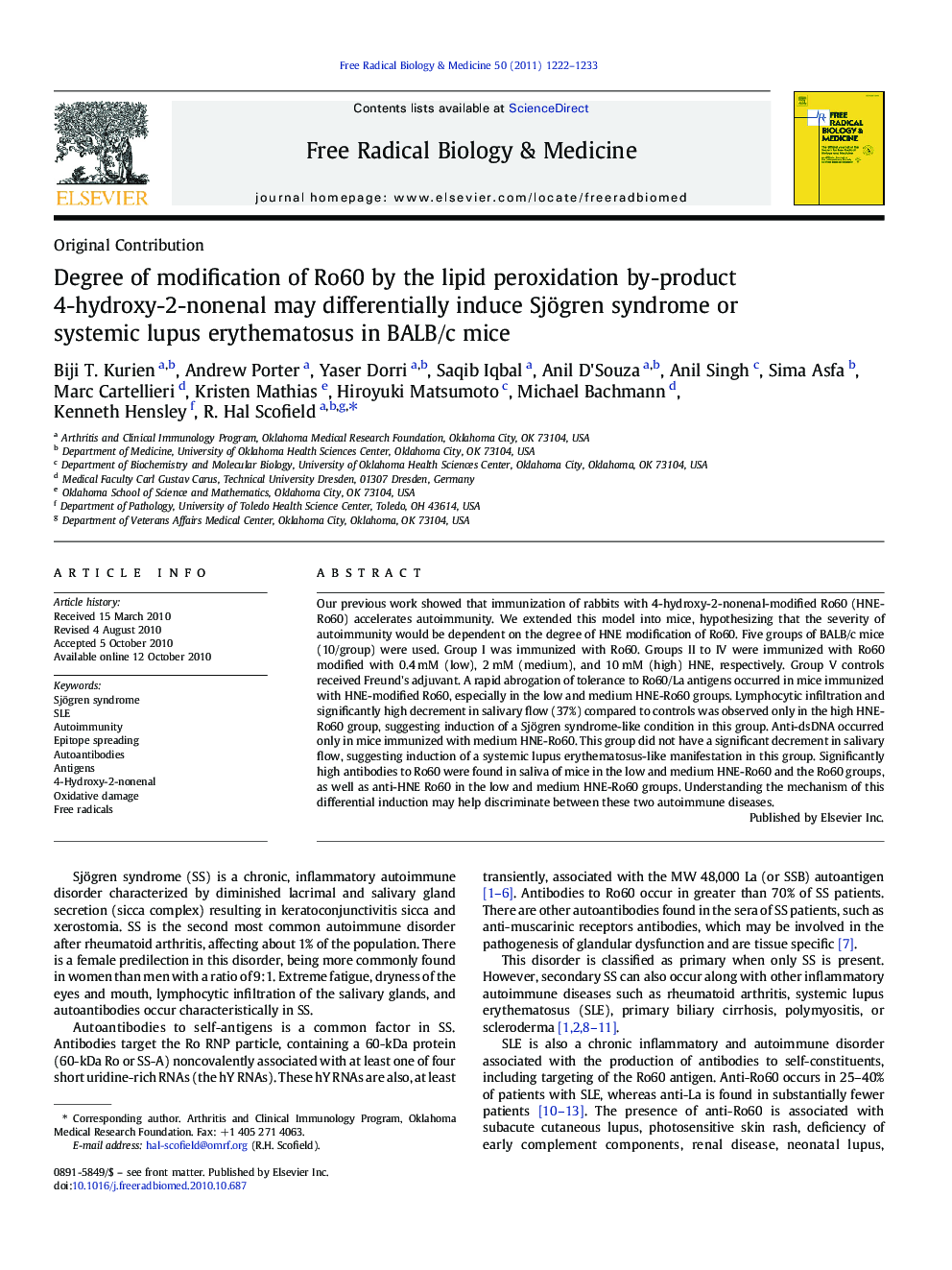| Article ID | Journal | Published Year | Pages | File Type |
|---|---|---|---|---|
| 10738377 | Free Radical Biology and Medicine | 2011 | 12 Pages |
Abstract
Our previous work showed that immunization of rabbits with 4-hydroxy-2-nonenal-modified Ro60 (HNE-Ro60) accelerates autoimmunity. We extended this model into mice, hypothesizing that the severity of autoimmunity would be dependent on the degree of HNE modification of Ro60. Five groups of BALB/c mice (10/group) were used. Group I was immunized with Ro60. Groups II to IV were immunized with Ro60 modified with 0.4Â mM (low), 2Â mM (medium), and 10Â mM (high) HNE, respectively. Group V controls received Freund's adjuvant. A rapid abrogation of tolerance to Ro60/La antigens occurred in mice immunized with HNE-modified Ro60, especially in the low and medium HNE-Ro60 groups. Lymphocytic infiltration and significantly high decrement in salivary flow (37%) compared to controls was observed only in the high HNE-Ro60 group, suggesting induction of a Sjögren syndrome-like condition in this group. Anti-dsDNA occurred only in mice immunized with medium HNE-Ro60. This group did not have a significant decrement in salivary flow, suggesting induction of a systemic lupus erythematosus-like manifestation in this group. Significantly high antibodies to Ro60 were found in saliva of mice in the low and medium HNE-Ro60 and the Ro60 groups, as well as anti-HNE Ro60 in the low and medium HNE-Ro60 groups. Understanding the mechanism of this differential induction may help discriminate between these two autoimmune diseases.
Keywords
Related Topics
Life Sciences
Biochemistry, Genetics and Molecular Biology
Ageing
Authors
Biji T. Kurien, Andrew Porter, Yaser Dorri, Saqib Iqbal, Anil D'Souza, Anil Singh, Sima Asfa, Marc Cartellieri, Kristen Mathias, Hiroyuki Matsumoto, Michael Bachmann, Kenneth Hensley, R. Hal Scofield,
